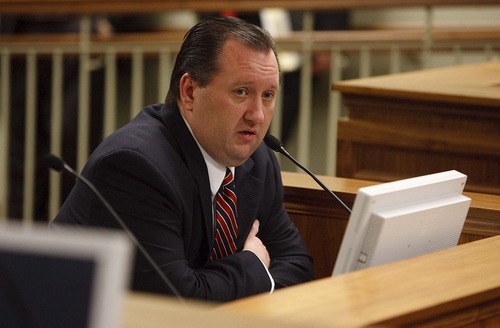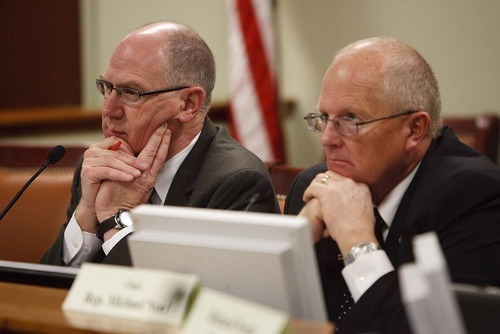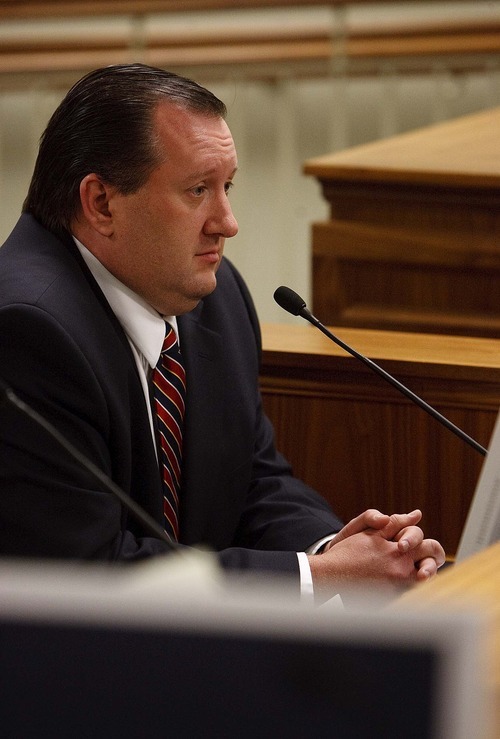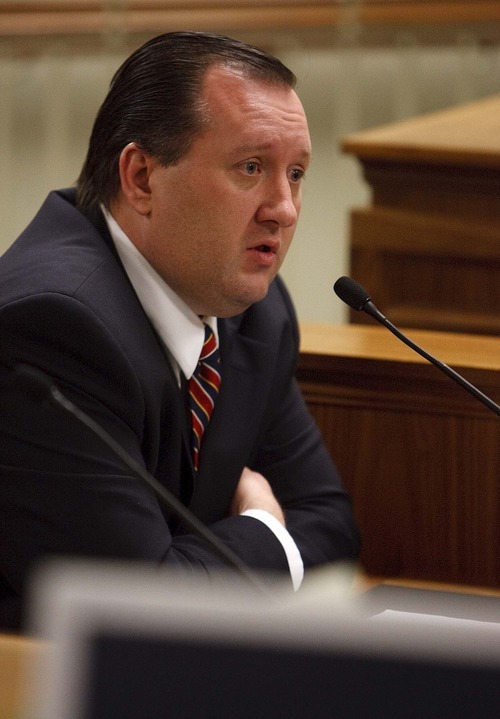This is an archived article that was published on sltrib.com in 2011, and information in the article may be outdated. It is provided only for personal research purposes and may not be reprinted.
The state budget, immigration and feral cats may spur changes to what the state considers a public record.
HB477, which changes Utah's records law to keep secret text messages and most business conducted by legislators, passed a House committee Wednesday in a unanimous vote. HB477 now moves to the full House.
Opponents, most of whom represented news outlets, testified in opposition to the bill and called the changes historic and said it will result in less information about government operations. Legislators said it brings up to date Utah's records law, known as the Government Records Access and Management Act (GRAMA).
Much of Wednesday's hearing before the House Public Utilities and Technology Committee focused on privacy in the digital age. The bill would keep private many of the records produced or received by the Legislature, including constituent correspondence.
The bill's sponsor, Rep. John Dougall, R-Highland, calling himself an advocate for government transparency, gave the example of a constituent e-mailing a legislator about a government program and disclosing that his or her child has an illness. That information could be published "on the front page of the newspaper," Dougall said.
"I would suggest that constituent believes they are communicating with you in private," Dougall said.
HB477 also would allow government agencies to charge more money for records, including "processing" fees and fess for "overhead and administration." The current law allows bodies to only charge for "direct administrative costs." Dougall said he doesn't want government agencies to be burdened with the cost of large requests.
"Are you bringing the legislation because you feel like [GRAMA] has gone too far?" asked Rep. Stephen G. Handy, R-Layton.
"Yes, that is what my concern is," Dougall replied.
"We're getting to the point," Dougall added, "where we want to mic up and put a camera on a legislator to monitor everything he does and everything he or she says not just when they're involved with the legislative process but in his or her life."
Jeff Hunt, an attorney who represents Utah news outlets and helped draft GRAMA in 1991, argued the current law is sufficient for dealing with technology changes. Text messages or other correspondence of a personal nature can already be withheld under the law.
"What matters is the content," Hunt said. "Does the content relate to the conduct of the public business? If so, it's a record."
Hunt suggested that keeping all text messages secret would encourage public officials to use that format to keep important information from the public. Also, government agencies already can and do charge for records.
HB477 "is out of proportion," Hunt said. "It is dealing with things that are not a problem and have served the state well for 20 years."
Rep. Mike Noel, R-Kanab, told Hunt he has observed that teens prefer text messaging to speaking.
"I really believe that if someone is replacing what was once common speech with a text message between two people, that is private speech," Noel said.
After the hearing, Hunt said Dougall told him HB477 was spurred by GRAMA requests to the Legislature seeking records related to budget discussions, immigration and a bill allowing citizens to kill feral cats under more circumstances. Dougall did not return a message for comment after the hearing.
Representatives from seven news outlets spoke against the bill. So did Sherilyn Bennion, of the Utah League of Women Voters, who called the bill a "full frontal assault" on GRAMA.
"This concerns the media, of course," Bennion said, "but this should concern every citizen."
The 11 members on the committee were not swayed by the opposition.
"There's a tremendous amount of government records that remain untouched," said Rep. Ken Ivory, R-West Jordan. "I appreciate the concern, but I don't see that this is a sweeping change of GRAMA."
Key GRAMA changes under HB477
Repeals the legislative intent of GRAMA, which states the law's intent is to balance access to public records with privacy.
Prohibits text messages, voice mails, instant messages and video chat recordings from disclosure in most cases.
Gives government agencies more time to respond to requests if the requestor seeks a "substantial" number of records.
Requires requester to show with a preponderance of evidence that it is in the public interest to release some records.















